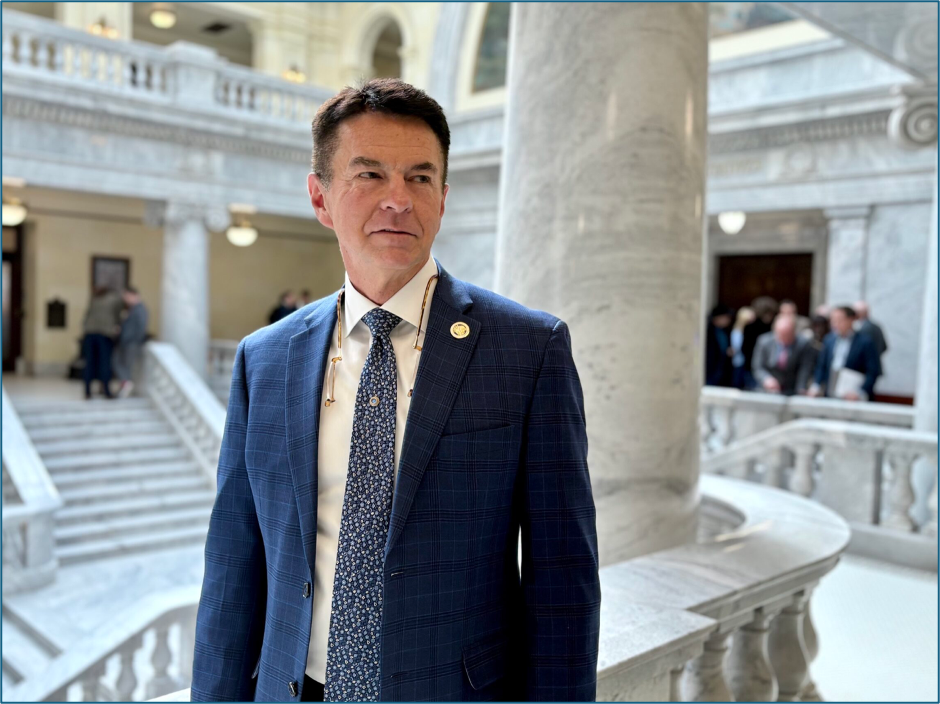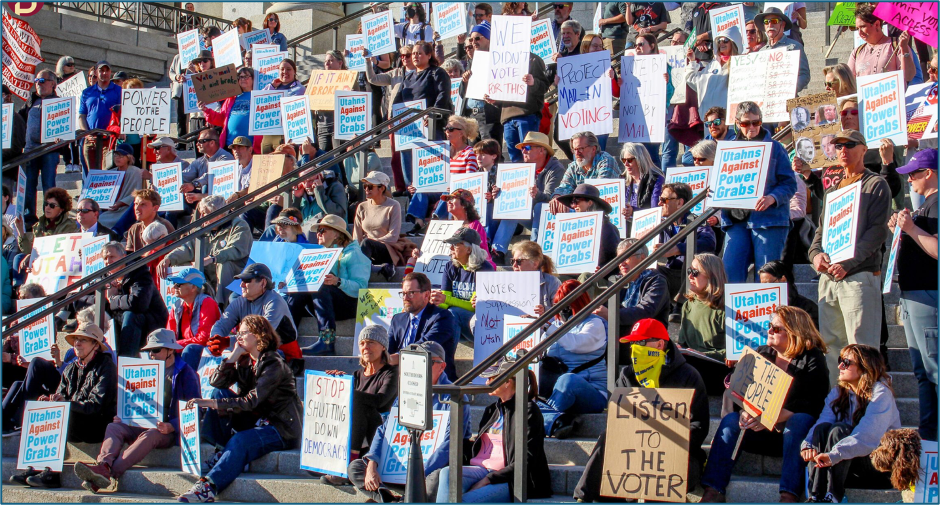About Time: Utah is Getting Rid of Universal Mail-In Voting
Despite repeated claims that Utah's elections are to be envied, the only reliably red Universal Mail-In Voting state is tightening the screws on the loopholes that enable fraud.
One state that has no excuse, given its ruby red status and low electoral vote count, for being the source of so much political pandemonium is, surprisingly, tightening up the ship a little bit. That state, which hasn’t backed a Democrat for president since 1964, is Utah – which gave us Mitt Romney, Evan McMullin, and a list of other pointless maladies, such as Universal Mail-in Voting. Prior to Trump winning Nevada last November, Utah was the only state out of eight such Universal mail states to have ever backed a GOP presidential nominee.
Elections these days come down to math:
Automatic Voter Registration
plus
Universal Mail-In Voting
plus
Legalized Ballot Harvesting
= a blue state.
Harris won 18 of 24 states with Automatic Voter Registration in 2024, with just New Hampshire for Harris among states without it, 6 of 8 states with Universal Mail-In Voting, and 16 of 25 with legalized or widely practiced ballot harvesting. Among states that combine all three sins, Harris won 6 of 7, losing just Nevada (which salvaged Jacky Rosen’s Senate seat with the presidential race already decided and therefore inconsequential).
Utah is aglow with cronyism and corruption, and their weak-kneed Governor, Spencer Cox, hasn’t made things any better. You can read about his uninspiring reign as governor in a piece I wrote last April, here. In another surprise, Cox has referred to House Bill 300, which recently passed both chambers of Utah’s legislature, as “brilliant.” Given past adoration for mail-in voting, I’m surprised a state that prides itself on standing out from the rest of the red state crowd in nearly every field, such as mobile voting, appears to be moving forward with ramping down mail-in voting. Perhaps there’s something we don’t know about yet that is going to come out and make them look like gold by handling it themselves first.
The growing left-wing population of Utah is lamenting House Bill 300’s passage, which (gasp) requires voters to opt-in for mail-in ballots rather than being sent one automatically, in a stroke similar to Florida’s recent changes, and those proposed in Arizona that the useless governor, Katie Hobbs, vetoed. The bill was much more aggressive when originally filed by State Rep. Jefferson Burton, but of course has been whittled down by colleagues who don’t want to face the wrath of people like those below, who somehow mustered the fortitude to appear at an in-person protest to protect the right to not have to show up and vote in person (or more correctly, to have the ability to not have to request a ballot, even if they’ll spend 12 hours looking at a phone screen every day):
The bill also creates measures to review the address database for voter registration anomalies, which when combined with the shotgun approach of sending ballots to every name in the registration database, pushes blank checks (free ballots) into population-dense areas like Salt Lake and Utah Counties, which have slipped in the past decade and made Utah less red than Tennessee. The obituaries for what is a fairly minor change meant to impose restraint on a vulnerable system are numerous:
Critics are also worried about the requirement that voters report an ID number on their mail ballots. College students, members of Native American tribes, and unhoused people often struggle disproportionately to meet requirements for state-issued ID cards, and as a result are more often excluded from voting.
Native leaders in Utah were very vocal this legislative session in opposition to Burton’s bill, in large part because of its new ID rules. HB 300 would allow Native people to use a tribal ID card while voting, but they would have to photocopy that ID and enclose it with the mail ballot; voters who use a state-issued ID would not face that requirement.
Kseniya Kniazeva, director of Nomad Alliance, a nonprofit that supports unhoused Utahns, said the people she works with “constantly” have trouble obtaining and maintaining photo ID. HB 300’s requirement that any would-be mail voter must input the last four digits of an ID card, she told Bolts, could pose an insurmountable hurdle for some.
“People registering to vote is already a way of them saying, ‘I want to vote and I want a ballot,’” Kniazeva said. “Why would you want people to jump through more hoops?”
If people can’t figure out how to use the Internet at their fingertips and get an ID, or request a mail-in ballot manually with a verified address on file, are we sure we want their votes? You know good and well that you do everything else in-person:
· Take kids to school
· Pick kids up from school
· Take kids to events
· Shop for groceries
· Go to the gym
· Pursue outdoor recreation
· Get your hair done
· Take dogs for a walk
· Drive golf balls
The good news for the slackers is, this bill won’t go into effect until 2029, meaning you can watch J.D. Vance win your state by less than he otherwise should have won it. Then you can go through the life-altering struggle of logging in to a portal (easier than scanning the QR code to link your Amazon Prime to a hotel’s TV) to confirm you want to receive a mail-in ballot, which will be mailed to you in an individual effort, rather than as part of a mass-mailing to over 1.7 million active registered voters.
For everyone else, prepare for more of this:
Mail-in balloting has to go, and I suppose without sweeping legislative reform such as that proposed in the MESA bill, it will have to be done gradually. Military stationed away from home precincts, the disabled, and perhaps few with other valid exceptions should be the only voters sending in ballots. While Utah House Bill 300 doesn’t fundamentally alter the elections landscape, it should make ballot stuffing harder and offer a hint of integrity to the state’s loose election system.
Seth Keshel, MBA, is a former Army Captain of Military Intelligence and Afghanistan veteran. His analytical method of election forecasting and analytics is known worldwide, and he has been commended by President Donald J. Trump for his work in the field.






I think some people in Utah politics are starting to get worried. From the corrupt judiciary hiding crimes against children, to the utterly corrupt voting system, to the spinelessness of our governor, I think some people know a reckoning is on its way. And they’re trying to sneak away from it by throwing us a bone in reform. But the cronyism is pretty deep and ugly here, and I’m not sure how we turn that tide without something big happening. But we can always hope.
Good job of focusing the light on Utah, captain. Perhaps we should tweek the famous Christy Lane song lyric: “One state at a time, sweet Jesus, that’s all that we’re asking of you, just give us the strength to do everything that we’ve got to do.” The more I read about Election Integrity the more committed I am to do my part. Thanks for your labor of love Seth.